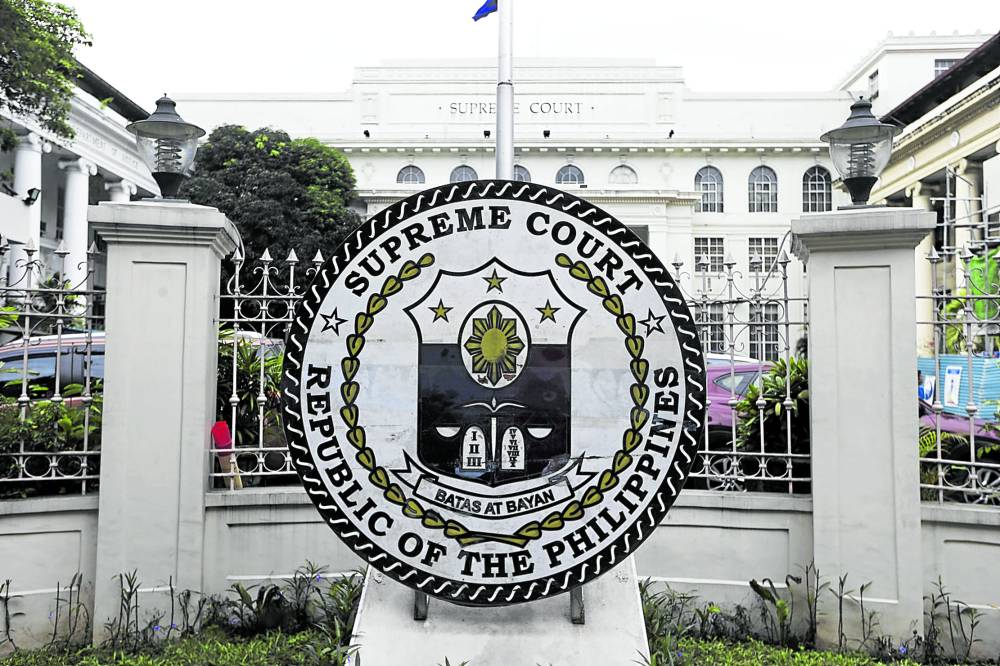
Supreme Court. INQUIRER PHOTO / NINO JESUS ORBETA
The Supreme Court is set to amend the Rules of Court to remove the authority of trial court officers to conduct a preliminary investigation (PI) in determining probable cause to warrant a person’s arrest.
Justice Undersecretary Raul Vasquez said on Monday that the amendment would create a “new paradigm” in which the PI becomes the “sole and exclusive domain” of the Department of Justice (DOJ).
Under Rule 112 of the Rules of Court, PI determines whether there is probable cause for an accused to undergo trial.
‘Weaponization’
Provincial or city prosecutors, judges of the municipal trial courts, national and regional state prosecutors, and “other officers as may be authorized by law” are among the officers authorized to conduct the PI.
Vasquez said the high court’s amendment would fast-track the trial process since the motion for judicial determination of probable cause would now be removed.
“Gone would be the days of frivolous cases, harassment suits, or weaponization of penal laws,” he said.
“We are truly hopeful that only quality cases would be filed—a development that cuts across the pillars of criminal justice by lowering the dockets in the law enforcement, prosecution, judiciary and corrections clusters,” he added.
Justice zones
The DOJ official spoke of the plan during Monday’s launch of the Dagupan City Justice Zone in Pangasinan province.
In a “justice zone,” key reforms in the delivery of justice are set in place to maximize coordination among different agencies such as the DOJ, the Department of the Interior and Local Government and the Supreme Court, according to Chief Justice Alexander Gesmundo, who led the launch.
READ: Supreme Court reports improved case resolution rate in 2023
“It streamlines coordination and enables real-time collaboration among local justice sector institutions, allowing them to better identify common issues and find solutions together, and making the delivery of justice more efficient and effective,” he said.
Gesmundo said the first justice zone in the country was launched in Quezon City in 2014.
Since then, 12 more justice zones have been established in key cities across the country, namely Cebu, Davao, Angeles, Bacolod, Naga, Calamba, Balanga, Baguio, Zamboanga, Tagaytay, Puerto Princesa and now Dagupan.

